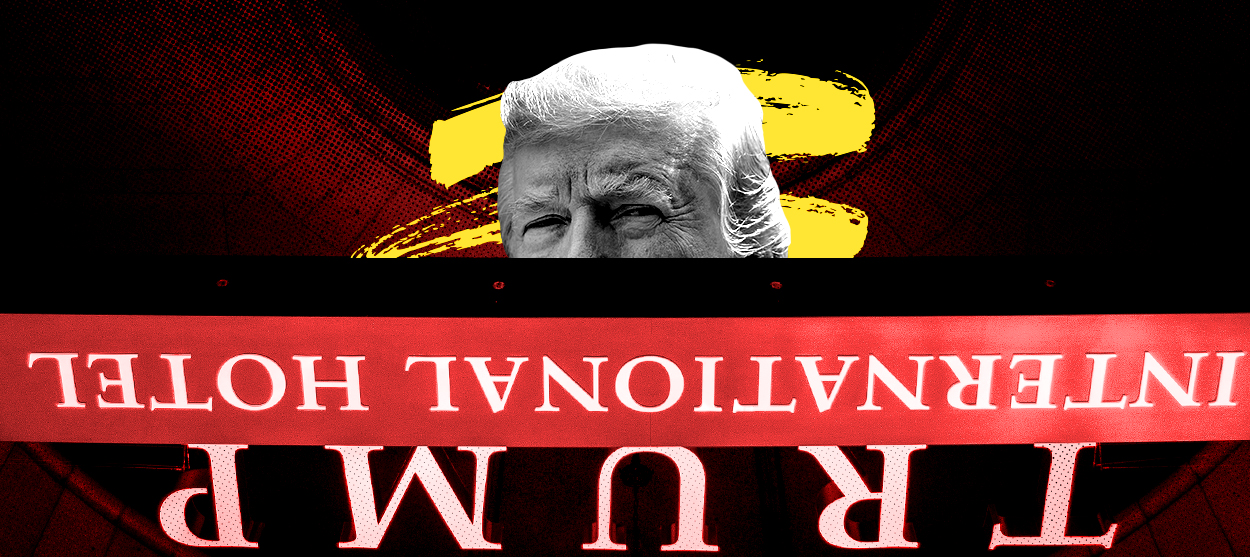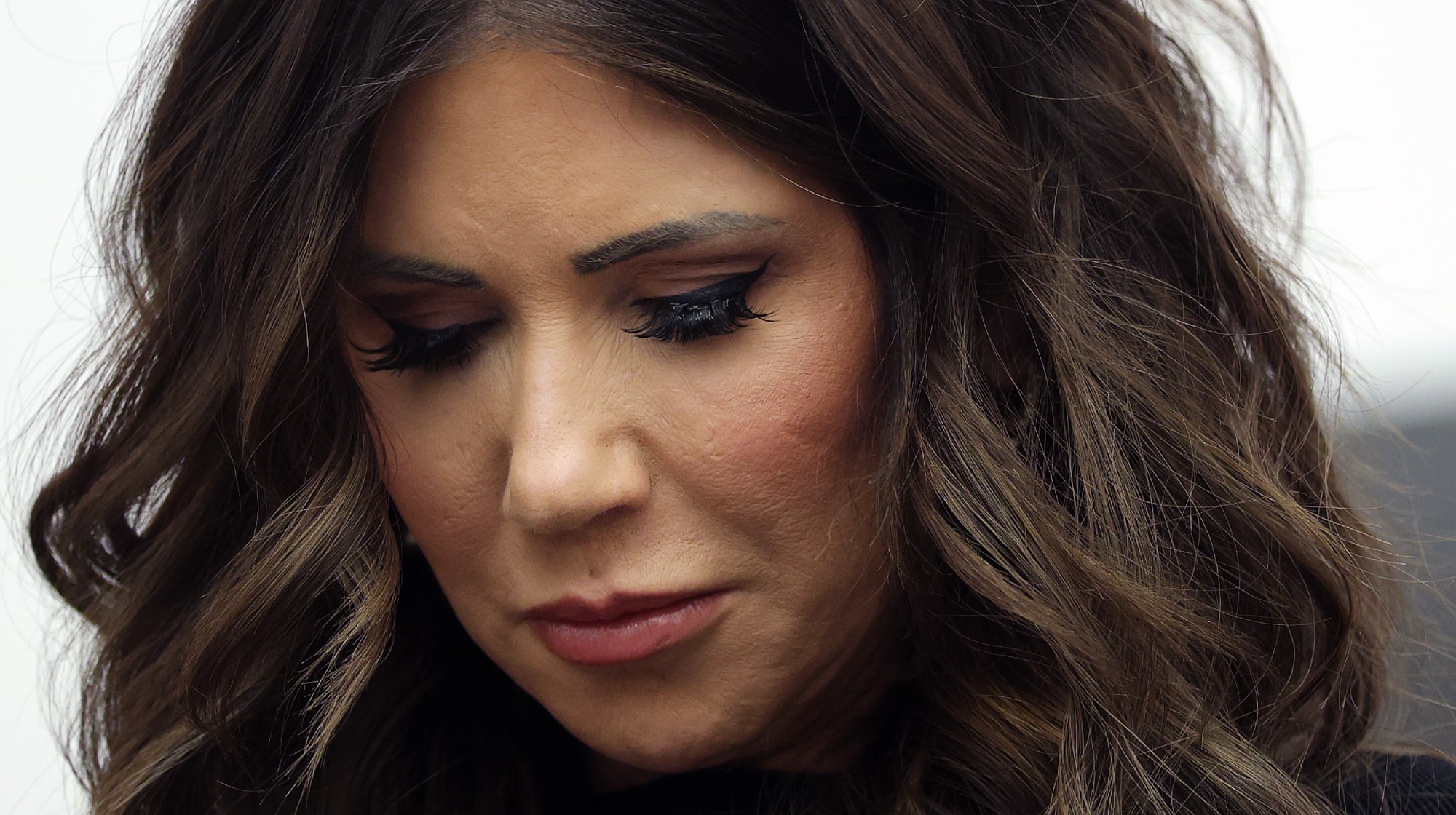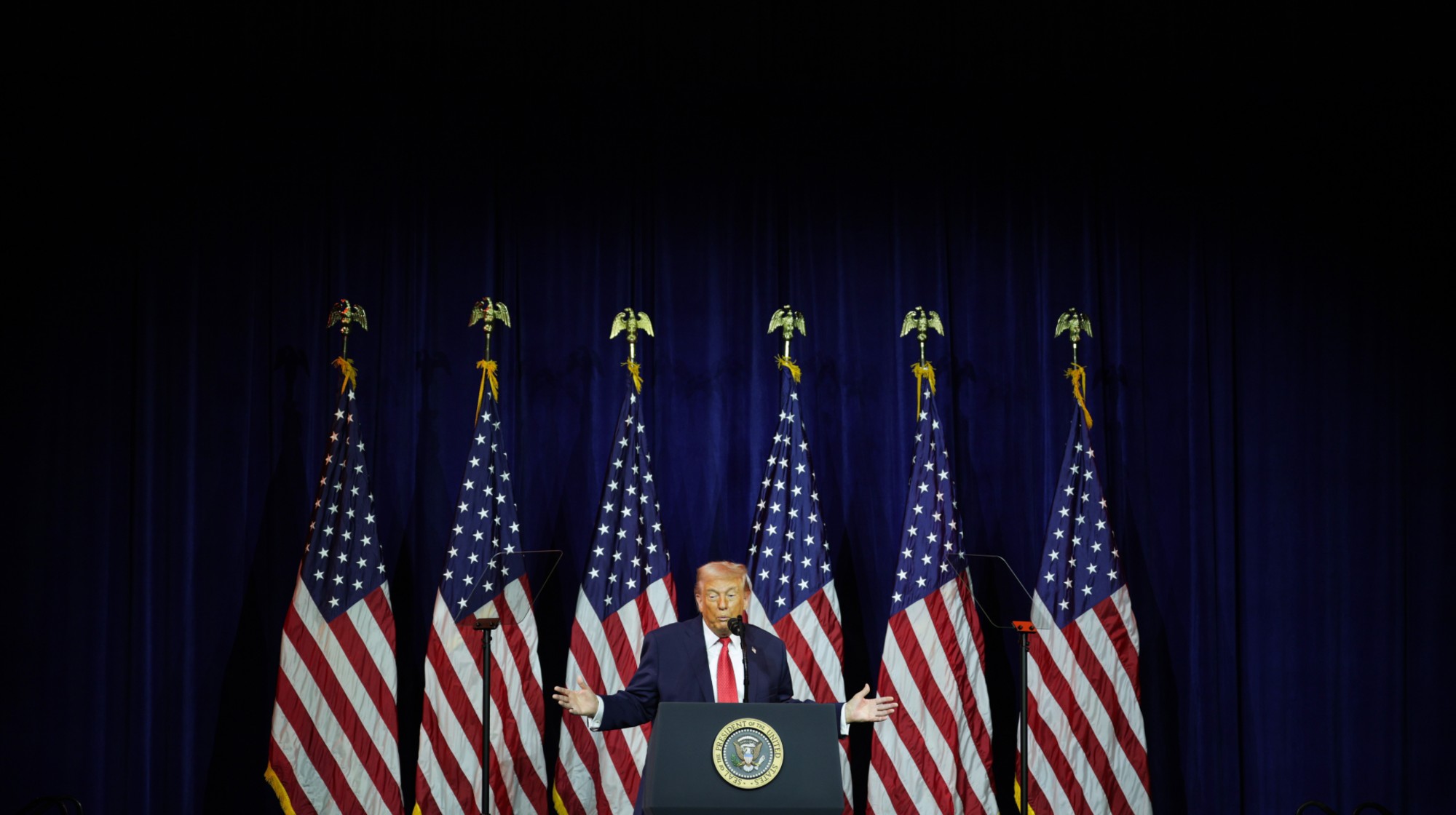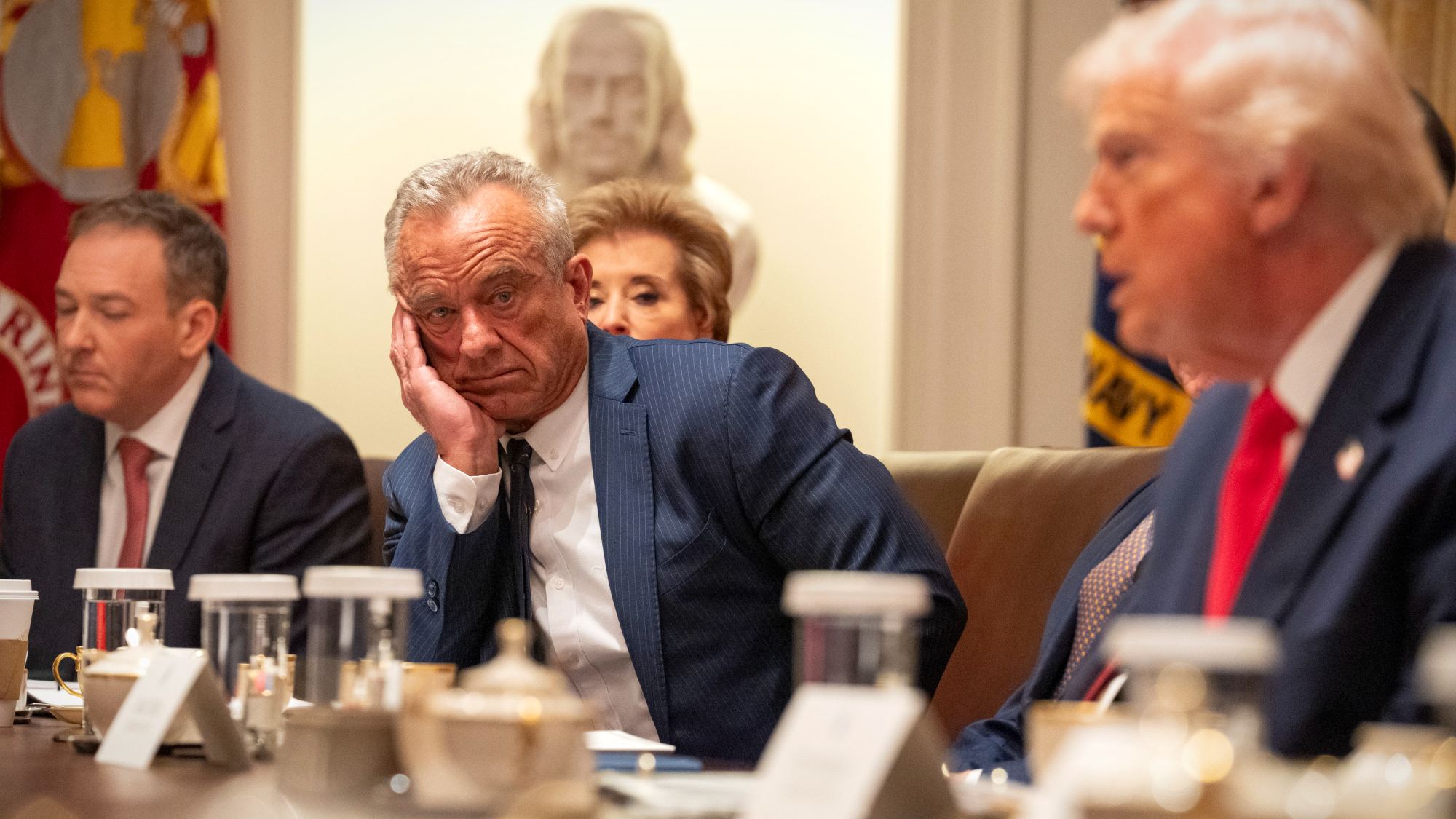The comically obvious corruption missing from Trump's impeachment hearings
Why aren't Democrats going after the president's unconstitutional personal profits?


A free daily email with the biggest news stories of the day – and the best features from TheWeek.com
You are now subscribed
Your newsletter sign-up was successful
Public impeachment hearings in the House of Representatives ramped up Friday with the testimony of Marie L. Yovanovitch, the former U.S. ambassador to Ukraine. Her story was the most compelling yet, detailing her long and often-dangerous diplomatic career, as well as her bewilderment at being abruptly shoved out of office by President Trump. The reason, she said, was a quiet smear campaign from both corrupt Ukrainian oligarchs and the Trump administration.
All this is very important. But so far there is no sign Democrats are going to add Trump's own personal corruption — how he is stuffing American government money into his own bank accounts and taking payments from foreign governments, both in clear violation of the Constitution — to the impeachment hearing schedule. (So far it has gotten only tangential consideration.)
It's a huge missed opportunity.
The Week
Escape your echo chamber. Get the facts behind the news, plus analysis from multiple perspectives.

Sign up for The Week's Free Newsletters
From our morning news briefing to a weekly Good News Newsletter, get the best of The Week delivered directly to your inbox.
From our morning news briefing to a weekly Good News Newsletter, get the best of The Week delivered directly to your inbox.
As I have written before, it is simply inarguable that Trump is violating both sections of the Constitution that prohibit the president collecting "emoluments," which just an old-timey word for compensation. Article I, Section 9 prohibits taking money from foreign governments without the approval of Congress, while Article II, Section 1 prohibits taking it from any U.S. states or the federal government. While in office, the president is supposed to receive only his salary, currently set at $400,000 — no less, and no more.
Trump receives both less and more. He donates his salary, but he also violates both emoluments prohibitions, raking in money hand over fist from the federal government and foreign states alike. The U.S. government is spending huge sums at Trump's personal properties, which he still owns and promotes continually, both domestically and overseas. (Conservative political operations have spent millions more at Trump hotels, which arguably should also count.) The take is comically obvious: In September, for example, Vice President Pence at the personal request of the president stayed at a Trump hotel in Doonbeg, Ireland, for a state visit in Dublin — which required a 3-hour commute clear to the other side of the country.
Representatives of at least 28 foreign states have stayed at Trump's D.C. hotel, to say nothing of his other properties. His sprawling business empire has ongoing operations in dozens of countries. Citizens for Responsibility and Ethics in Washington, a federal watchdog, has monitored Trump's personal conflicts of interest and come up with over 2,300 and counting.
Watch enough screeching Republican propaganda and you can gaslight yourself into doubting this, but it is not difficult to understand why the president should only receive his (extremely ample) salary while in office. The preamble of the Constitution makes clear that its whole aim is to enable "We the People" to achieve things like "establish[ing] Justice" and "promot[ing] the general Welfare" and "secur[ing] the Blessings of Liberty to ourselves and our Posterity." It does not say "so the president can become rich beyond the dreams of avarice."
A free daily email with the biggest news stories of the day – and the best features from TheWeek.com
It takes about five seconds of thought to grasp why the American head of state should not be allowed to accept bribes from foreign governments or direct the U.S. government budget into his own pockets. Public servants are supposed to be just that — servants, people who enter politics to virtuously serve the common good. They don't always live up to that standard, of course, but in that case they should be thrown out of office, or perhaps into prison.
Yovanovitch's testimony evinced a painfully earnest faith in American institutions. She clearly thought she was doing God's own work in Ukraine, protecting innocents from Russian domination. "How could our system fail like this? How is it that foreign corrupt interests could manipulate our government?" she asked.
The reason, of course, is that at the top levels of government, the United States is every bit as corrupt as the most beleaguered post-communist states in Eastern Europe, if not worse. The American president is a crook and a thief. Indeed, Ukrainian President Volodymyr Zelensky was by all accounts frustrated and offended by expectations that he should be used like a rented mule for a dirty political trick. He was going to go along with it until the scheme became public only because he figured he had no choice, given Ukraine's dependence on U.S. assistance.
In other words, it is America corrupting Ukraine, not the other way around. Zelensky himself knew the score, carefully mentioning to Trump in a phone call that he stayed at Trump's New York hotel. Can you blame him?
Americans struggle with this realization. The mainstream press, with its wide chauvinist streak, cannot bring itself to describe the dire state of U.S. democracy clearly (parodied well in Joshua Keating's "If It Happened There" series at Slate, which describes U.S. politics in the voice of a New York Times foreign correspondent). Granted, it is good to have an expectation that the United States is not a corrupt country. But simply pretending Washington isn't corrupt won't make it so.
The way to get clean government is to set high expectations for public virtue and punish officials who don't live up to them. If anyone on Earth has ever deserved to be removed from office for corruption, it is Donald Trump — and that was obvious before the Ukraine scandal ever came to light.
Ryan Cooper is a national correspondent at TheWeek.com. His work has appeared in the Washington Monthly, The New Republic, and the Washington Post.
-
 Labor secretary’s husband barred amid assault probe
Labor secretary’s husband barred amid assault probeSpeed Read Shawn DeRemer, the husband of Labor Secretary Lori Chavez-DeRemer, has been accused of sexual assault
-
 Trump touts pledges at 1st Board of Peace meeting
Trump touts pledges at 1st Board of Peace meetingSpeed Read At the inaugural meeting, the president announced nine countries have agreed to pledge a combined $7 billion for a Gaza relief package
-
 Britain’s ex-Prince Andrew arrested over Epstein ties
Britain’s ex-Prince Andrew arrested over Epstein tiesSpeed Read The younger brother of King Charles III has not yet been charged
-
 Democrats pledge Noem impeachment if not fired
Democrats pledge Noem impeachment if not firedSpeed Read Trump is publicly defending the Homeland Security secretary
-
 The billionaires’ wealth tax: a catastrophe for California?
The billionaires’ wealth tax: a catastrophe for California?Talking Point Peter Thiel and Larry Page preparing to change state residency
-
 Trump fears impeachment if GOP loses midterms
Trump fears impeachment if GOP loses midtermsSpeed Read ‘You got to win the midterms,’ the president said
-
 Bari Weiss’ ‘60 Minutes’ scandal is about more than one report
Bari Weiss’ ‘60 Minutes’ scandal is about more than one reportIN THE SPOTLIGHT By blocking an approved segment on a controversial prison holding US deportees in El Salvador, the editor-in-chief of CBS News has become the main story
-
 Democrat files to impeach RFK Jr.
Democrat files to impeach RFK Jr.Speed Read Rep. Haley Stevens filed articles of impeachment against Health and Human Services Secretary Robert F. Kennedy Jr.
-
 Has Zohran Mamdani shown the Democrats how to win again?
Has Zohran Mamdani shown the Democrats how to win again?Today’s Big Question New York City mayoral election touted as victory for left-wing populists but moderate centrist wins elsewhere present more complex path for Democratic Party
-
 Millions turn out for anti-Trump ‘No Kings’ rallies
Millions turn out for anti-Trump ‘No Kings’ ralliesSpeed Read An estimated 7 million people participated, 2 million more than at the first ‘No Kings’ protest in June
-
 Ghislaine Maxwell: angling for a Trump pardon
Ghislaine Maxwell: angling for a Trump pardonTalking Point Convicted sex trafficker's testimony could shed new light on president's links to Jeffrey Epstein
